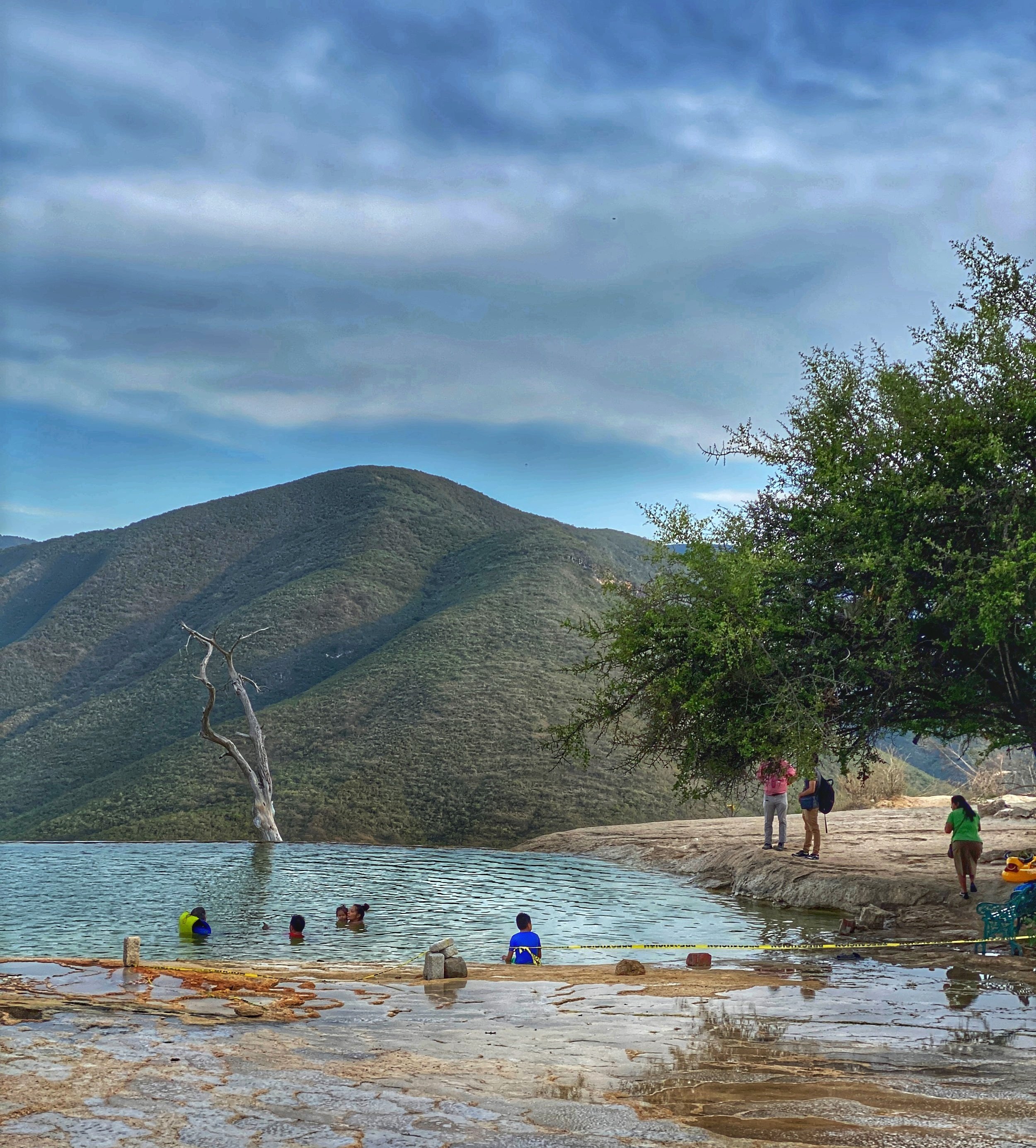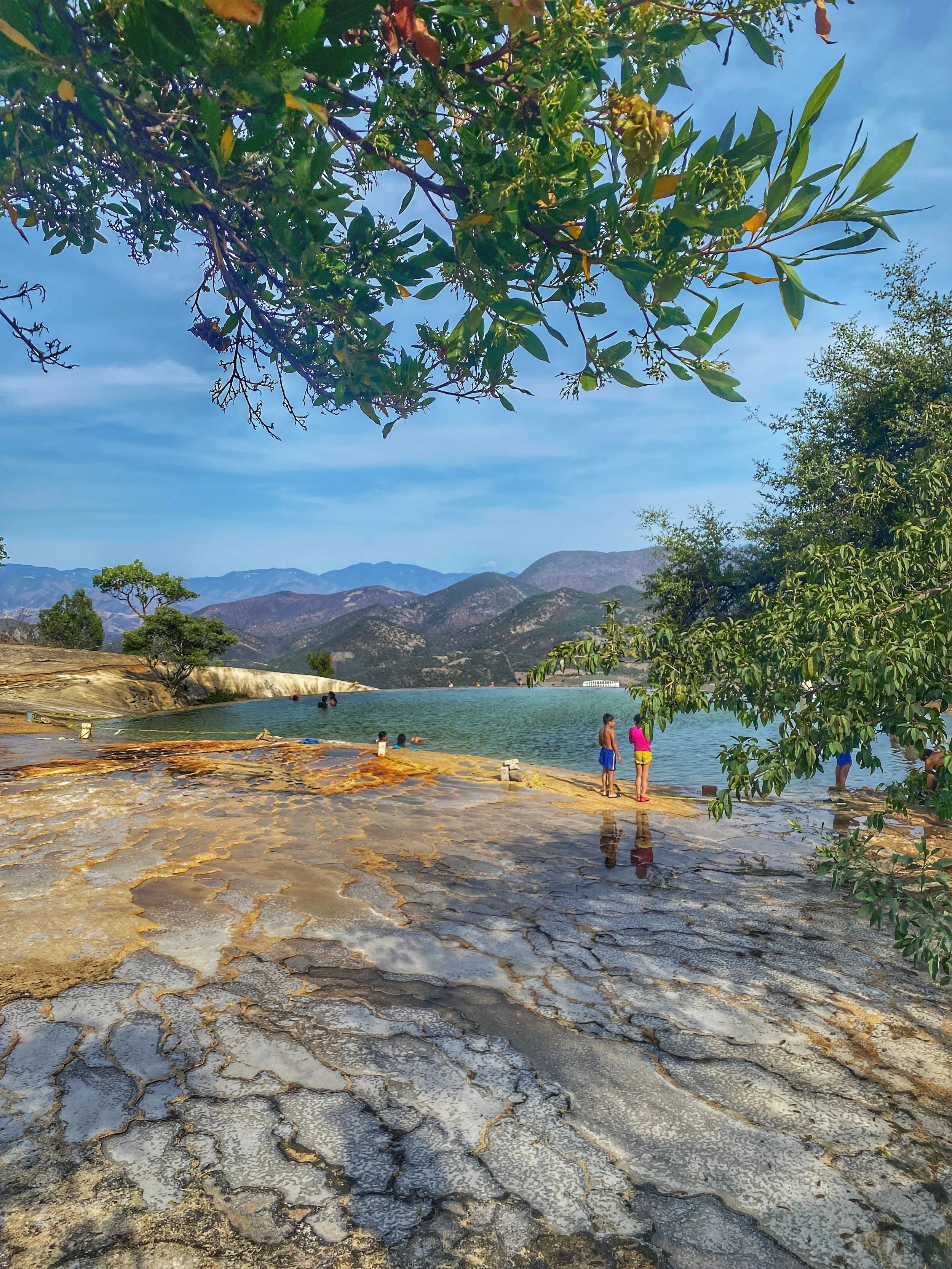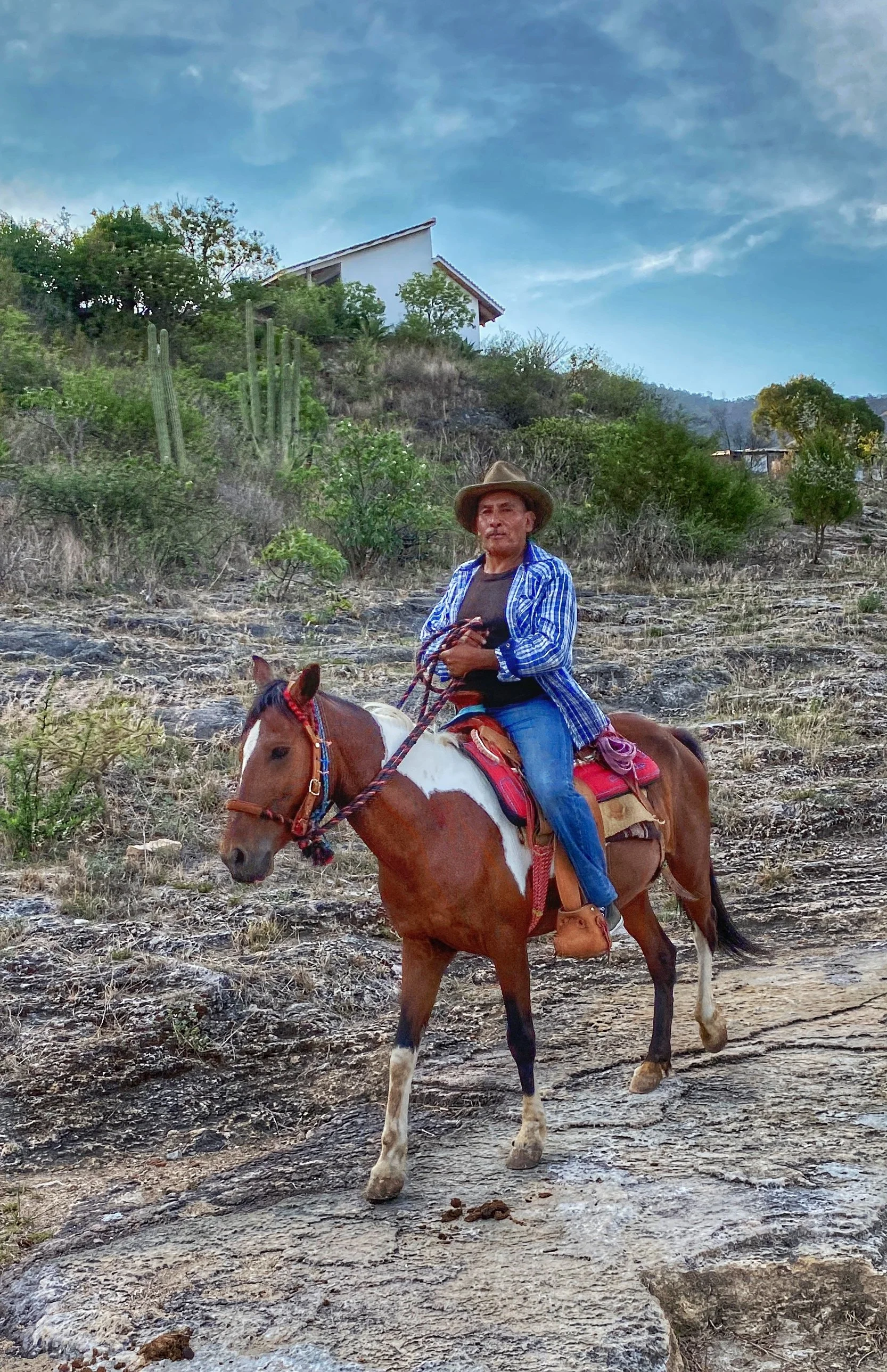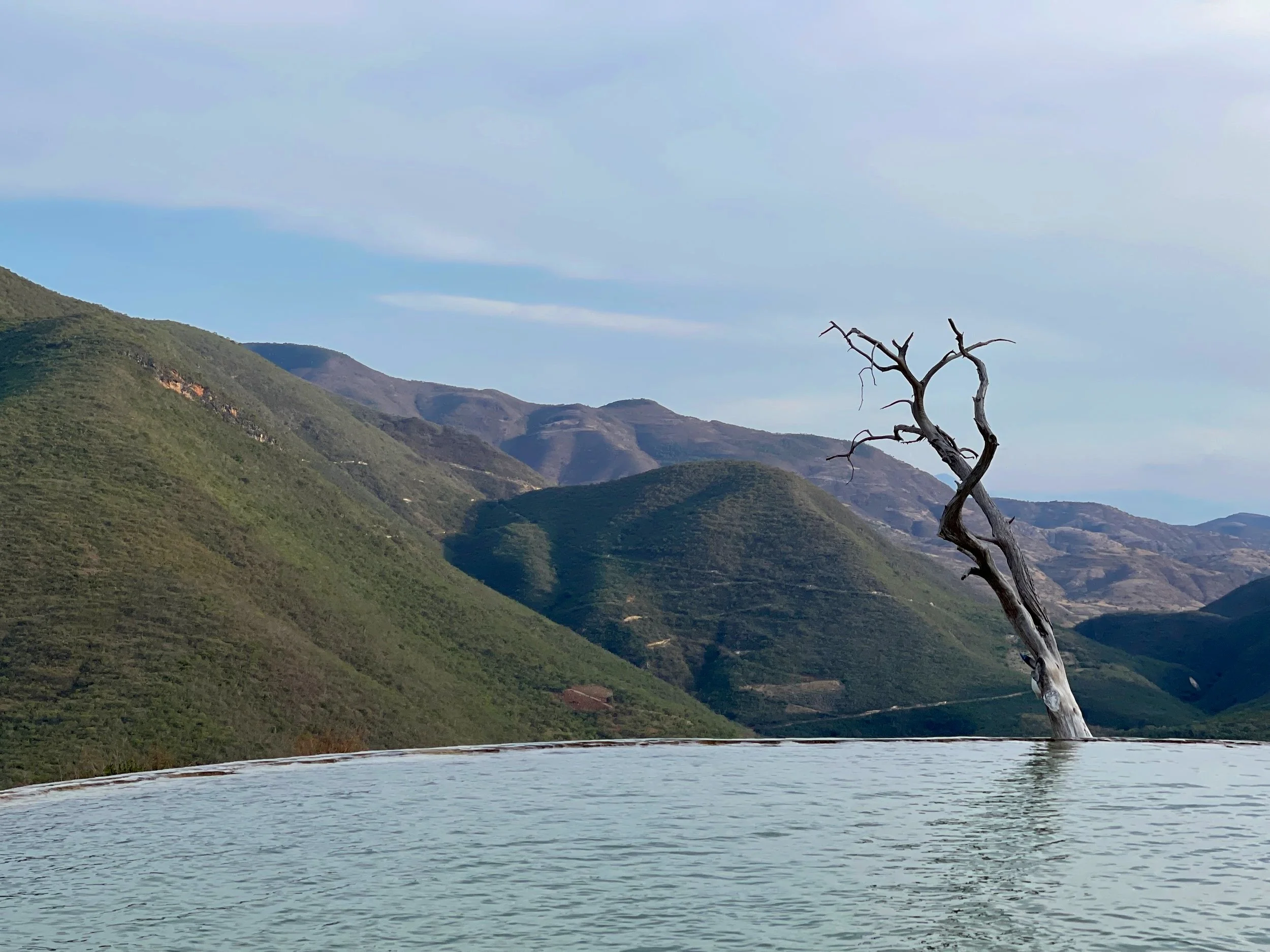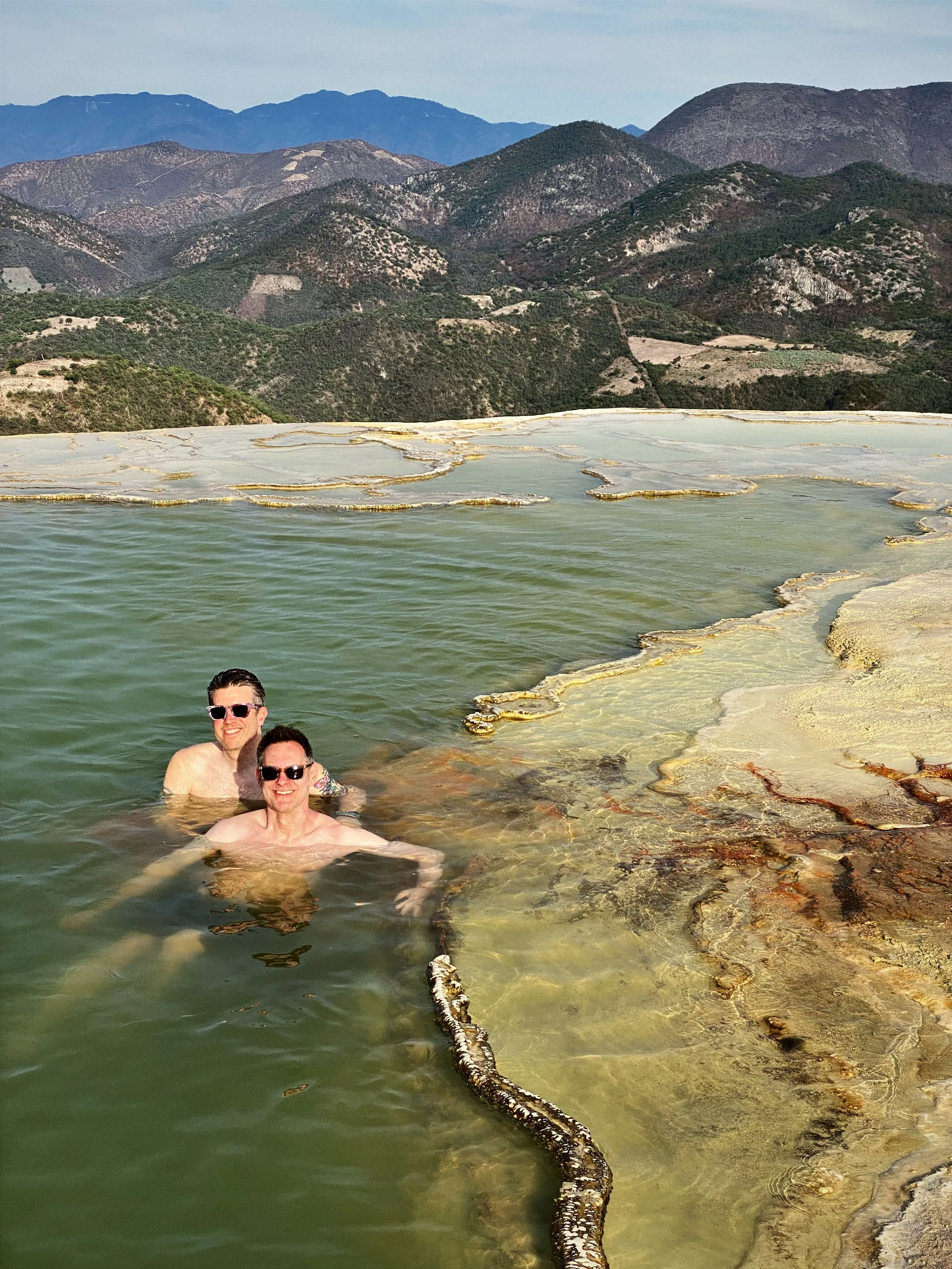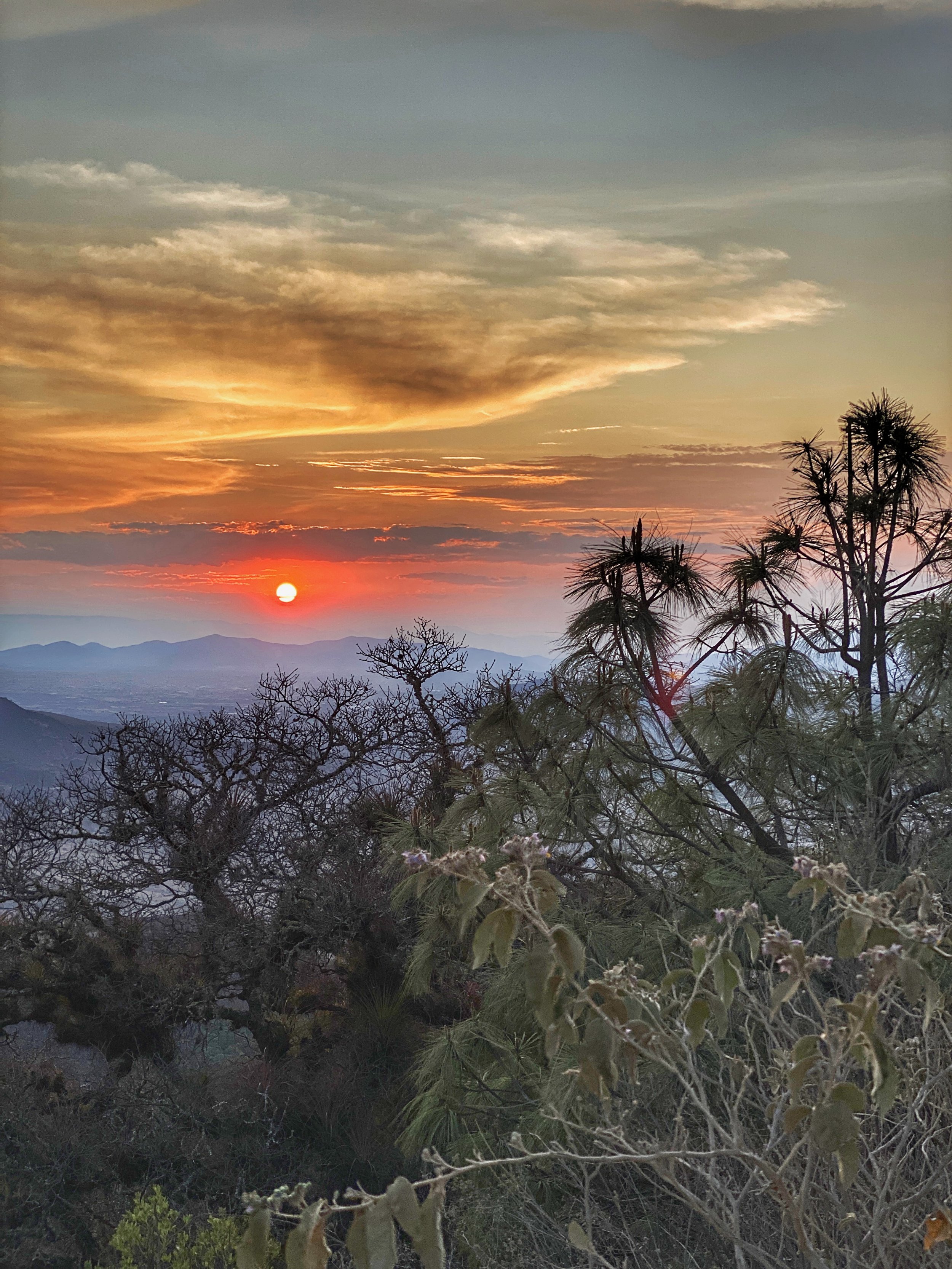Calling all nature lovers! Tips to experience the magic of these breathtaking mineral springs — a mysterious example of Mexico’s natural beauty.
If you’re in the Oaxaca area, we definitely recommend a day trip to Hierve el Agua.
I’ll admit it. After speaking with a friend who had recently been to Oaxaca, I was initially reluctant about visiting Hierve el Agua, the calcified waterfalls and spring-fed mineral water pools outside of the city of Oaxaca de Juárez. I told Wally, “It’s going to take us a couple hours to get there, and it might be too crowded.” Plus, after scrolling through dozens of images on Instagram, it seemed like the main purpose of the site was to provide opportunities to take aspirational selfies of the infinity pool overlooking the mountains and reflecting a bright blue sky. I was wrong.
Natural springs form a sort of infinity pool perched at the edge of a cliff, looking out over the Sierra Madre mountains.
Our friend Kevin, who lives in Oaxaca, said it was one of his favorite places to watch the sun set and insisted we had to see it. Wally pleaded. I was convinced — especially after I insisted we make it a day trip and visit the Iglesia de San Jerónimo Tlacochahuaya and the legendary candlemaker at Casa Viviana en route.
“Calcium has left behind a suspended mineral formation that looks like a frozen waterfall. ”
You’d better hurry up and get to Hierve el Agua while there are still entrance passes left!
Hierve el Agua: Almost Closed for Good
The popular geologic wonder is located in the town of San Isidro Roaguía, in the municipality of San Lorenzo Albarradas, about 42 miles, or a two-hour drive southwest of Oaxaca de Juárez. In English, Hierve el Agua means “Boil the Water.” Don’t let the name fool you, though: This refers to the oxygenated spring water that naturally bubbles up out of the ground from an aquifer — not the temperature of the pools, which is around 72°.
Wally and Duke hiked down to the lookout, with the calcified waterfall in the background.
Despite its name, which translates to “Boil the Water,” these aren’t hot springs.
Pro tip for getting there: Check if the roads are open. In April 2020, residents of the municipality of San Lorenzo Albarradas, which encompasses the rugged mountainous region where Hierve el Agua is situated, blocked off one of the roads leading to the popular attraction. The abbreviated version as to why was twofold: to curb the spread of COVID, and to manage the influx of visitors. Pre-pandemic numbers fluctuated between 2,500 to 7,000 visitors per day, which, with high traffic and the ensuing garbage, was having a negative impact on the environment. There was even talk that Hierve el Agua would remain closed.
Thankfully, the natural wonder has reopened, with new rules to prevent overcrowding; the number of visitors per day has been reduced to 200, and entrance fees have been put in place to help maintain the monument and surrounding grounds.
Our friend Kevin says hello to a dog in the stretch of market stalls leading to the attraction.
The Market and Approach to Hierve el Agua
Our group of four reached our destination in the late afternoon and parked our rental car. We didn’t know about the visitor cap and were fortunate enough to gain admission. What a disappointment it would have been to drive all the way out there, only to be turned away! So, even though Kevin loves to watch the sun set in the mountains, it’s probably best to arrive earlier than later in the day.
We passed stalls selling packaged snacks, water, soft drinks, beer, micheladas and piña loca, a mezcal-based cocktail served in a hollowed-out pineapple, with additional chunks of the fruit drizzled with bright red chamoy sauce and sprinkled with a healthy dose of chile con limón seasoning.
Giddy up! A vaquero, or cowboy, rides down the trail to the springs.
The walking trail that leads to the main area where the pools are was a bit steep but offered sweeping panoramic views of the Sierra Madre del Sur mountain range and the outlying valley, which was occasionally interrupted by monstrously tall flowering agave stalks. I was grateful that I brought my Teva sandals, which have great support and traction — I couldn’t imagine attempting to traverse the path in flip-flops.
There are a few different pools to explore at Hierve el Agua.
Elevated Expectations: Petrified Waterfalls and Mineral Springs
Locals revere the waters for their sacred healing properties. And while the basins are man-made, the underground spring that feeds them is natural. Because the pools are full of mineral-rich deposits of calcium carbonate, magnesium and sulfur, they had a yellowish hue.
The pools are refreshing — with the water temp being about 70º.
Although it was spring, it was still quite hot. Be advised that you’ll be exposed to direct sunlight since there really isn’t any shade on the plateau. Also, be sure to stay hydrated; at 5,000 feet above sea level, it’s one of the highest elevation points in Oaxaca state, and your body loses water through respiration at high altitude twice as fast as it does at sea level.
The rock formations by the mineral springs resembled a lunar landscape.
The leafless gnarled tree at the edge of the main pool surrendered long ago. But it has become iconic of Hierve el Agua, so it pissed us off to see a visitor had hung their bag from one of its twisted branches.
The famous dead tree at the edge of one of the pools
Kevin and his amigo David decided to hang back and relax, but Wally and I wanted to check out the trail that leads to the larger of the two petrified “waterfalls” to get a closer look. The hike itself is 1.6 miles long, with an elevation change of 623 feet. You’ll find a couple of benches and a covered pavilion at the top of the trail to relax and hydrate after you’ve completed the trek.
Take a break from mezcal and folk art and admire the natural wonder of Hierve el Agua.
The surrounding landscape and foliage is also impressive.
Hierve el Agua is a picture-perfect way to spend an afternoon.
There are two petrified waterfalls at Hierve el Agua. Rising up from near-vertical cliffs, there’s the 98-foot, nine-story-high Cascada Grande and the smaller 39-foot, four-story-high Cascada Chica. These formations are the result of mineral-rich spring water that has trickled over the cliff face for thousands of years. It’s similar to the way that a candle drips wax down the side of a bottle while melting. As a result, the calcium has left behind a suspended mineral formation that looks like a frozen waterfall.
La Cascada Grande is nine stories tall!
After our hike, Wally and I took a plunge to cool off, which felt great after being exposed to the sweltering Oaxacan sun.
Wally and Duke cool off after their hike.
We packed up and headed back to the car. As the sun began to set, Kevin stopped the car so we could get out and take one last look at this stunning landscape. We gazed out over the mountains, and I reflected on the pleasant day, grateful for having experienced the geological marvel in person, and for having spent it among friends. –Duke
If you can, time your trip to catch a gorgeous sunset in the mountains on your way home.
The Lowdown
Hours: 7 a.m. to 5 p.m.
Parking: 100 pesos ($5)
Admission: 50 pesos ($2.50) per person
Bring: Sunscreen, footwear that can get wet and has good traction, and bottled water (though you can buy drinks and snacks at the market)


